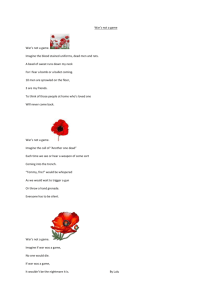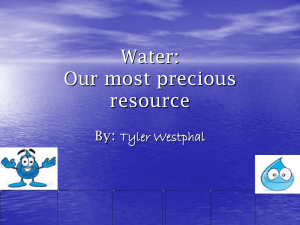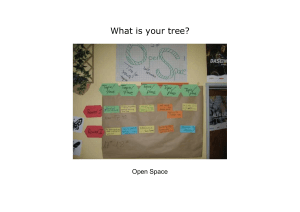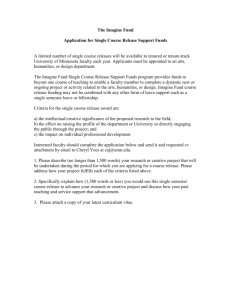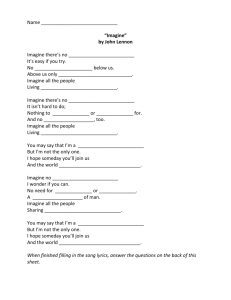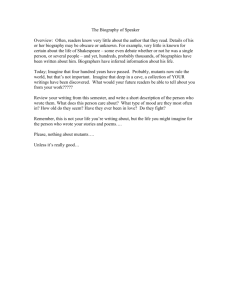POLI 165, CLASSICAL DEMOCRACY SIMULATION
advertisement
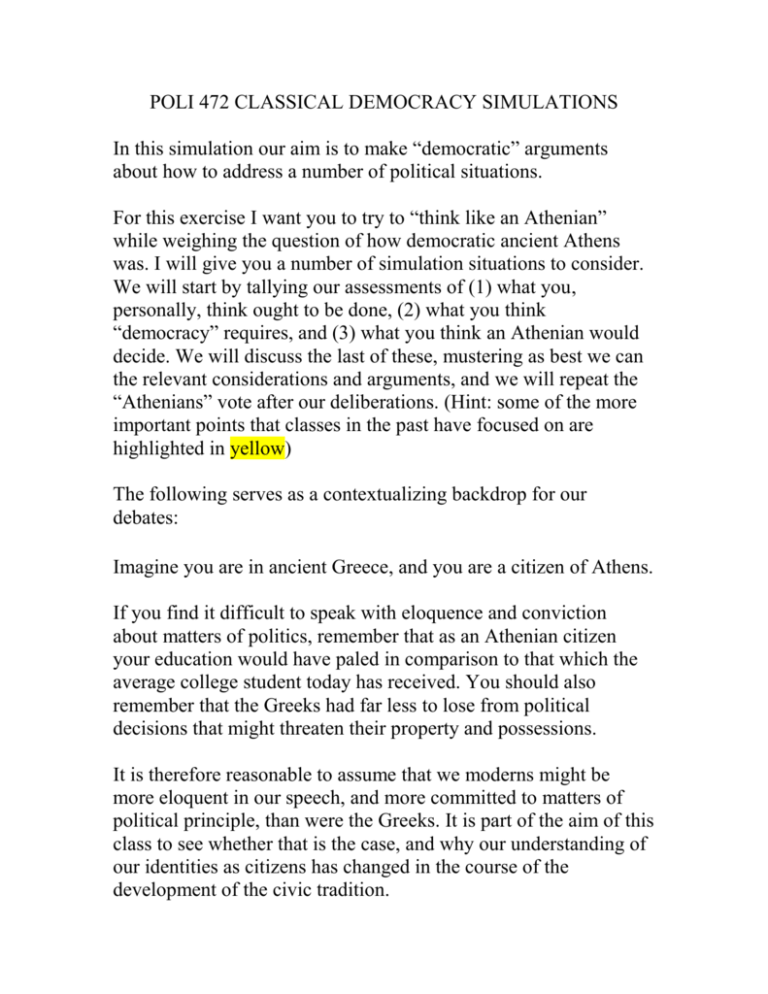
POLI 472 CLASSICAL DEMOCRACY SIMULATIONS In this simulation our aim is to make “democratic” arguments about how to address a number of political situations. For this exercise I want you to try to “think like an Athenian” while weighing the question of how democratic ancient Athens was. I will give you a number of simulation situations to consider. We will start by tallying our assessments of (1) what you, personally, think ought to be done, (2) what you think “democracy” requires, and (3) what you think an Athenian would decide. We will discuss the last of these, mustering as best we can the relevant considerations and arguments, and we will repeat the “Athenians” vote after our deliberations. (Hint: some of the more important points that classes in the past have focused on are highlighted in yellow) The following serves as a contextualizing backdrop for our debates: Imagine you are in ancient Greece, and you are a citizen of Athens. If you find it difficult to speak with eloquence and conviction about matters of politics, remember that as an Athenian citizen your education would have paled in comparison to that which the average college student today has received. You should also remember that the Greeks had far less to lose from political decisions that might threaten their property and possessions. It is therefore reasonable to assume that we moderns might be more eloquent in our speech, and more committed to matters of political principle, than were the Greeks. It is part of the aim of this class to see whether that is the case, and why our understanding of our identities as citizens has changed in the course of the development of the civic tradition. But for the moment we transport ourselves to a time the character of which led Adam Ferguson to claim: “Men are so far from valuing society on account of its mere external conveniences, that they are commonly most attached where those conveniences are least frequent, and are there most faithful, where the tribute of their allegiance is paid in blood… Hence the sanguine affection which every Greek bore to his country, and hence the devoted patriotism of an early Roman.” “Feeling” this way is perhaps more difficult than we might at first imagine. We must imagine houses without drains, beds without sheets or springs, rooms as cold, or as hot, as the open air, only draftier; meals that begin and end with a bland pudding, and cities that could boast neither gentry nor millionaires. We must imagine having to tell the time without watches, to cross rivers without bridges, and seas without a compass, to fasten our clothes – or rather, our two pieces of cloth – with two pins instead of rows of buttons, to wear our shoes or sandals without stockings, to warm ourselves over a pot of ashes, to judge open-air plays or lawsuits on a cold winter’s morning, to study poetry, philosophy, and literature without books, geography without maps, and politics without newspapers. We have to recognize that very few have much more wealth than would allow them the freedom to be active in deciding, with others, how they are to survive and prosper as a community. Many have slaves who provide them with the time away from necessary labor that makes political participation possible. Each needs the others to keep domestic peace, and the slaves in obedience; there are no police, and each individual is no more powerful than his wiles, and the skill he has at hand to hand combat, or handling a bow, sling, spear, broadsword, or dagger. If any are richer than others, it is hardly the advantage we might imagine. Wealth is typically vested in land; you cannot therefore move your most valuable properties when they are threatened. There are no banks to safeguard the meager accumulation of gold or other precious materials some may possess, and there is no way to lock up one’s goods against the thieves and robbers. Wealth does not readily translate into influence. It is virtually impossible to bribe others with money, unless it is the poorest citizens. And even then bribes won’t go very far. The only real and dependable power is the power of your reputation. This is a society of peasants. They need each other – and not just to keep domestic peace. The relations their community has with neighboring communities are not always amiable. Each community maintains its freedom only by the strength of its members. If there is war – and there is always war – individuals must purchase or make their own weapons and armor, and they must carry it to the field of battle on their own back. They must also live off the land – which means appropriating the food stores of those communities through which they must travel on the way to battle. If you must go to war, you cannot afford to lose. There are no “rules of engagement,” no Geneva Convention. You slaughter your enemies, or they slaughter you. If you lose, you and every ablebodied citizen who is captured will likely be put to death – especially if you display great ability and courage. Those who can be coerced will be carted off as slaves, everyone else is killed. If you manage to escape, you can be sure that your enemies will destroy your crops and lay waste to every means of support you may have. Strength and intelligence – and the courage to use them -- is the foundation of security. But courage as an individual is meaningless unless your fellow citizens share your virtues. Your honor in the eyes of your fellow citizens is your only meaningful source of recognition and distinction. And your honor is worthless without those others for whom it has meaning. This is what it means to be a citizen, and everything that defines who you are as a unique individual is part and parcel of the political life of your community. Take that identity away, and your uniqueness is meaningless. The history of these people does not recall the greatness of rich men because they are rich, and the names of talented craftsmen, or artists, or sculptors, or musicians are remembered because they are citizens, not celebrities. It is intellect, or valor, or the failures of achievement that are most frequently recorded for posterity. It is these that make a polity great or flawed; it is these that make it possible for the wealthy to exist, for the artist to paint and sculpt, for the musician to compose, and for the craftsman to excel in his trade. The glory of all is the condition of glory for any. The freedom of each requires the freedom of everyone. You are nothing without us, we are everything that makes your existence meaningful. Now imagine yourself in this context, think about how you might respond, how a “democrat” might address the situations we shall consider, what you think a society made up of people like this might do, and make the case to the class.
